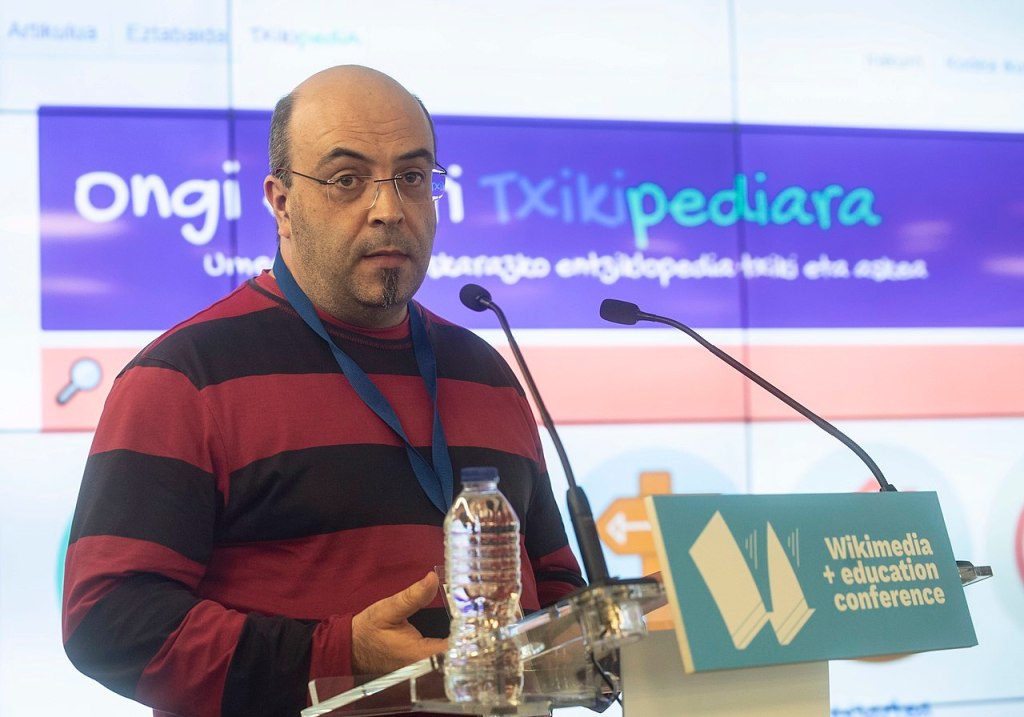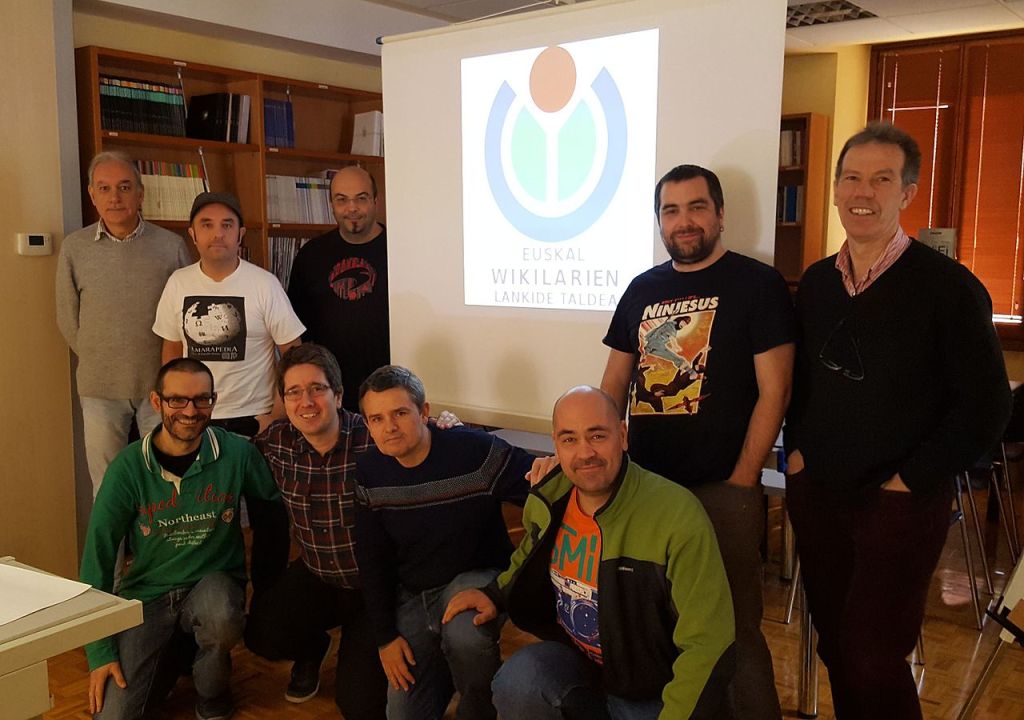
I recently sat down (virtually) with Basque Wikipedian Mikel F. Arroiabe (User:Gartxoak) to learn more about his history in the Wikimedia movement, his interests, and his ongoing work to cover more of the world’s knowledge in the Basque language.
1. Let us begin with an introduction about yourself. Your pursuits and well as your areas of interests.
My name is Mikel F. Arroiabe, I’m from the Basque Country. I am a Biology and Geology teacher at a high school in a town called Zumaia. My main area of interests are science, topics related to the Basque Country, and our own language.
I was born in a small town called Aretxabaleta in a Basque language-speaking family, so I’m native speaker. I also speak Spanish, English, some French, and I also speak a little bit of Urdu. I was a teacher of recently arrived Pakistani children some years ago.
2. Tell us briefly about how you got introduced to Wikimedia projects? Also, how did you get involved with the Basque Wikipedia?
Searching for topics in Wikimedia, specially Wikipedia, has been very useful ever since it was created. The Basque language is a minority language in our country and for decades we have struggled to keep it alive.
Some ten years ago when my students were looking for information to do their homework on the Internet, they had to look it up in Spanish Wikipedia and then translate the subject to Basque. It was then that I decided to produce articles in Euskera, on the topics that my students would use for their homework.
I started writing articles in Basque Wikipedia and after some time I found more Wikipedians like me.
3. Tell us about your special interest areas on the Basque Wikimedia project.
I started writing science articles, and as I travel frequently, I wrote many articles about the cities and countries I visited. I also write about sports – mainly football and rugby – and rowing. Rowing is a very popular sport in our country. I also contribute to Txikipedia.
4. Is it easy to find references resources (online/ offline) in your language?
I would say it’s not very difficult finding reference resources in the Basque language. We have newspapers, television and radio in our language and many culture associations about different fields. We also have universities in Basque language. All of them have websites on the Internet.

5. Tell us about your association with other fellow contributors on Basque Wikipedia.
Many Basque Wikimedians created the Basque Wikimedians User Group (Euska Wikilarien Kultur Elkartea) in 2016. The first time we met we had ten people and nowadays we are thirty. But there are many more anonymous contributors in the Basque Wikipedia.
We are very different people with the same goal, improving and expanding Basque language in internet. We are translators, librarians, culturalists, technical experts, journalists, teachers, scientists, workers… and also students.
We organize many activities such as meetings, edit-a-thons, courses, and championships. In 2019 we organized the Wikimedia+Education Conference 2019 in Donostia. We have an Education Program in collaboration with the Basque government, Basque Universities and some schools.
It started four years ago and 3,000 students have already contributed to the Basque Wikipedia with 1,500 articles created, 3, 000 articles expanded, and 9,000 references added. Those articles are based on topics determined by education advisors for high school students.
Lastly, we created Txikipedia three years ago, a version of Basque Wikipedia for kids. I’m mainly focused on this project. We teach 14-18 year old students how to contribute to Txikipedia (and by the way in Wikipedia) and they write articles for younger kids (8-13 year old).
6. How do you feel about the scope of Basque Wikimedia projects in terms of expansion and growth?
I think that Basque Wikipedia is growing very fast in number of articles, number of Wikipedians and prestige in Basque society. 250 Wikipedians contributed last month and we have nearly 100,000 visits per day.
7. Where, according to you, is the scope of expansion of Basque language Wikipedia in the coming decades?
We are exploring new ways and fields. We are always trying to see up-to-date with other languages’ Wikipedias.
8. Do you feel there are avenues of cooperation between Basque and other European language Wikimedia projects?
Whenever we go to international conferences we try to make alliances with other Wikipedians. It’s easier for us to join minority languages Wikimedians such as Catalan, Galician, Welsh people.
9. What are your future Wiki goals and ambitions?
We are in a good place in the Basque Wikimedian User Group. We are making efforts in growing and I think they are going in the right direction. The main purpose is having every bit of information in the Basque language on the Internet, and of course updated. The articles made about COVID-19 pandemic have been a good example of it.
10. What strategies do you suggest in enlisting new users and retaining existing users on Basque Wikimedia projects?
We organize photography and article championships in order to draw new users and we host edit-a-thons in different towns within our country, so people can realize that editing Wikipedia is very easy and enjoyable.
11. What is your message for new Wikimedians – Wikimedians in general and Basque Wikimedians in particular?
Wikimedia is not just an encyclopedia, it’s the largest collaborating work made all over the world. It’s based in transversal working, always in the positive mood of enriching the articles already created and creating new ones of each one’s interests. It’s exciting having interactions between Wikimedians of different languages, asking for translations to your own language, or answering interviews like this one. I would encourage Wikimedians to focus on minority languages, it’s very important for improving these languages on the Internet, which can be the salvation of them in the future.
12. Do Basque Wikimedians use social media to stay connected?
Yes, we do have social media; Twitter, Facebook, and blog. We use it for promoting our information about the events we organize. We also publish articles about breaking news. Txikipedia also has a Twitter account.
Editor’s note: This interview has been edited for length and clarity.

Can you help us translate this article?
In order for this article to reach as many people as possible we would like your help. Can you translate this article to get the message out?
Start translation